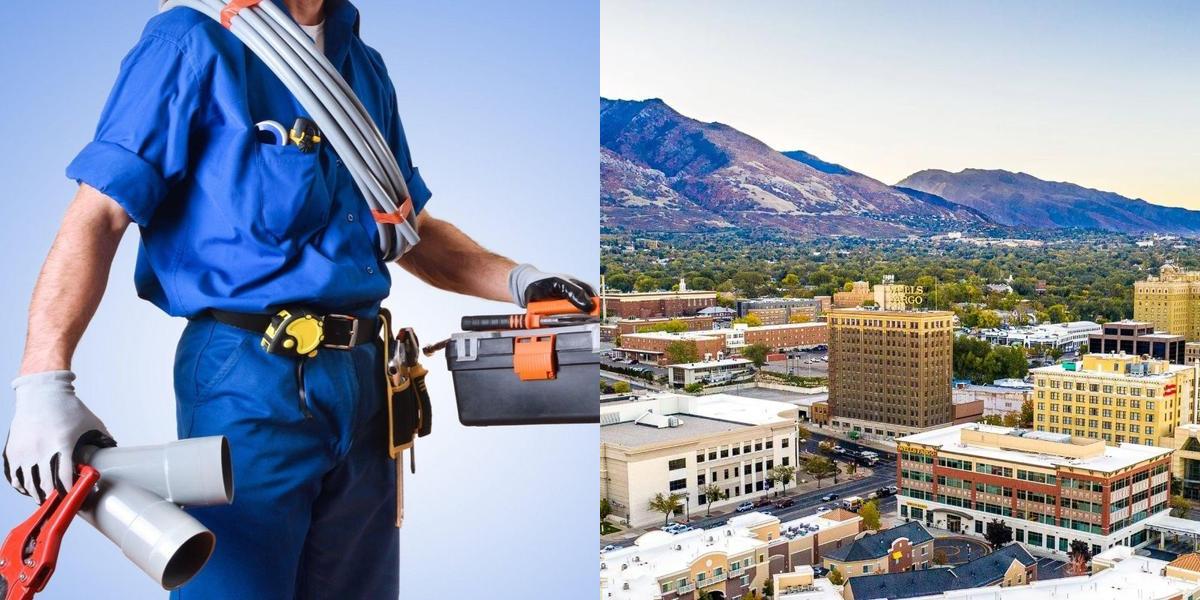How to Become a Plumber in Utah

Plumbers play a crucial role in ensuring the smooth functioning of our daily lives. From fixing leaky pipes to installing new plumbing systems, their expertise is essential in maintaining a safe and comfortable environment. If you're interested in becoming a plumber in Utah, here's what you need to know:
Step 1: Create a professional resume
One of the first steps in securing a job as a plumber is to create a professional resume. Your resume should highlight your education, training, work experience, and any relevant certifications or licenses you hold. Be sure to include any specialized skills or areas of expertise that may set you apart from other applicants.
Step 2: Network with professionals in the industry
Networking is an essential component of any job search. By connecting with professionals in the plumbing industry, you can gain valuable insights, learn about job opportunities, and potentially secure recommendations or referrals. Attend industry events, join professional associations, and reach out to experienced plumbers in your area to expand your network.
Step 3: Utilize online job boards and websites
There are many online job boards and websites that specialize in listing job opportunities in the trades, including plumbing. These platforms allow you to search for jobs based on location, experience level, and other criteria. Be sure to regularly check these websites for new job postings and submit your resume to any positions that align with your skills and qualifications.
Step 4: Apply to plumbing companies and contractors
Another way to find a job as a plumber is to directly apply to plumbing companies and contractors in your area. Research local plumbing companies and contractors and reach out to them to inquire about any job openings they may have. Even if they are not currently hiring, expressing your interest and providing your resume can leave a lasting impression and increase your chances of being considered for future opportunities.
Step 5: Consider starting your own plumbing business
If you have the necessary skills, experience, and entrepreneurial drive, you may want to consider starting your own plumbing business. This will allow you to be your own boss, set your own schedule, and have more control over your earning potential. However, starting a business requires careful planning, financial investment, and knowledge of business operations. Be sure to research the necessary steps and requirements before embarking on this path.
Career Paths and Opportunities after Becoming a Plumber
Once you have obtained your plumber certification and secured a job as a plumber, you may be wondering about the potential career paths and opportunities that lie ahead. In this section, we will explore some of the career paths and opportunities that are available to plumbers.
Plumbing contractor
As a plumber, one of the most common career paths is to become a plumbing contractor. Plumbing contractors are responsible for overseeing plumbing projects, managing a team of plumbers, and ensuring that work is completed according to standards and regulations. This role allows you to take on more responsibility and potentially earn a higher income.
Specialization
Within the field of plumbing, there are various areas of specialization that you can pursue. Some common specializations include pipefitting, gas fitting, sprinkler fitting, and steamfitting. By specializing in a specific area, you can develop expertise in that particular field and potentially earn higher wages.
Plumbing inspector
Another career path that you can consider as a plumber is becoming a plumbing inspector. Plumbing inspectors are responsible for inspecting plumbing systems to ensure that they comply with building codes and regulations. This role requires a deep understanding of plumbing codes and regulations and can be an excellent opportunity for those who enjoy attention to detail and ensuring compliance.
Teaching or training
If you have a passion for sharing your knowledge and helping others learn, you may want to consider a career in teaching or training. Many trade schools and vocational institutions offer plumbing courses, and they often hire experienced plumbers as instructors. By teaching or training aspiring plumbers, you can pass on your knowledge and contribute to the development of the next generation of plumbers.
Entrepreneurship
As a certified plumber, you have the option to start your own plumbing business. Starting a business allows you to be your own boss, set your own schedule, and potentially earn a higher income. However, entrepreneurship requires careful planning, financial investment, and business acumen. It is important to thoroughly research and understand the necessary steps and requirements before starting your own business.
Final Thoughts
Becoming a plumber can be a rewarding career choice for those who enjoy working with their hands, solving problems, and providing essential services to the community. By obtaining your plumber certification, gaining work experience, and actively seeking job opportunities, you can increase your chances of finding employment as a plumber. Once you have established yourself in the field, there are various career paths and opportunities that you can explore, including becoming a plumbing contractor, specializing in a specific area, becoming a plumbing inspector, teaching or training, or starting your own plumbing business. Whatever path you choose, a career in plumbing offers stability, job security, and the opportunity for personal and professional growth. So, if you have a passion for plumbing, don't hesitate to pursue this rewarding career path.
To learn more about plumbing opportunities in Utah, visit Utah Plumbing Association.
If this article isn't quite hitting the mark for you, why not give these other articles a try:

Winlynd Caballero is a member of Dreambound's Sales team. She helps in handling the company's finullcial transactions, generating reports, and school sales. Beyond her responsibilities in the realm of numbers and business, Winlynd finds herself deeply immersed in a world of art and music.



